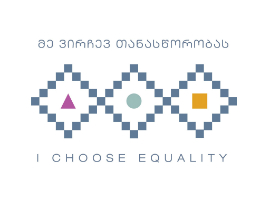"Are you a Baptist? - Asked the master who taught me to work on enamel.
Yes – I replied.
There was a long pause. I wasn’t expelled from class that day. When I went to the next lesson, (s)he opened the door and told me (s)he could not let me in the house. I was already a big girl. I had never felt so bad and I had never experienced being discriminated before.
When I realized my uniqueness, I was still studying at a Soviet school. Back then, my differences were not related to my church, but more to religion in general. Amid teachers’ agitational conversations in the Soviet times, I realized that my family had a different worldview. However, like the rest of the children, I thought the teacher was an infallible creature. I had my first doubts here and could not tell who was right. I knew I was not alone because the other children were also silently hiding Easter eggs in their bags. However, I also knew that I was different from them.
The most painful things started when religion also appeared on TV. Before the program "Illusion", some airtime was dedicated to a priest who cursed different people, including the Baptist Church. I was very upset by this. I thought everyone who went to church had the same attitude. This scary feeling was very hard for a 15-16-year-old girl. If I met anyone on my way to the church, I would say I was going to see a relative. I kept it a secret, and then I felt like I was betraying God, the church, my family and myself. I'm realizing this only now, however at that time I thought it was a good excuse.
My courage increased when I received satisfactory answers to my questions and realized why I am in this church. I have openly told new people I made friends with at university that I go to church and that this church is not orthodox. Some asked their priests for a permission to be friends with me, while others reacted with some facial expressions and pauses. I felt much better and free, which was the most important thing. Standing firmly also reduces the discriminatory environment - people see that you are not trying to influence them and do not consider yourself superior to anyone, however, you are neither hiding nor ashamed.
Ignorance creates fear. The public does not know what to expect from you as a different person. In a relationship it turns out that you are just an ordinary person, experiencing happiness and sadness, anger and laughter the same way, which changes their attitude. That is why integration is so important. Over time, other people’s attitudes towards me have also changed. Previously, if I used to receive only insulting messages on social media, now I have almost no such communication. If a stranger texts me, I know they only want to ask some question.
We must see God in every human being. If they need us to stand by them, we must help; If they’re voiceless, we have to speak on their behalf. This is what Christianity and humanity is all about. "We - people of different religions, backgrounds, sexual orientations or abilities - are created in the image and likeness of God, and all these differences are a sign that this world created by God is interesting and beautiful."





